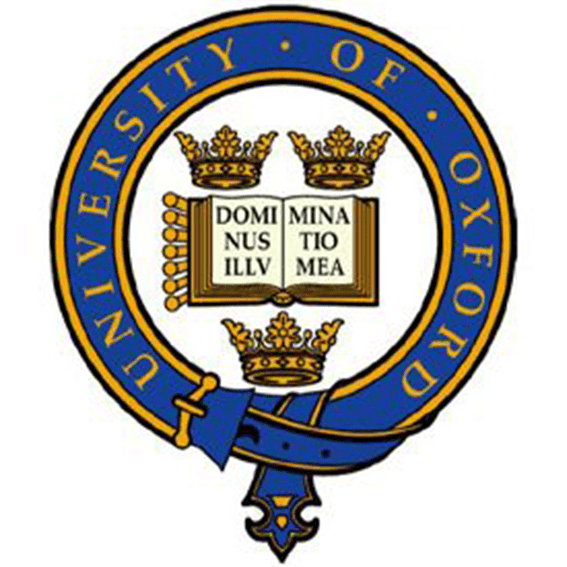Financial Framework's Role in Economics and Management of Human-Centered Development
Date:
October 17th, 2025 (UTC+3)
Organizer:
Danubius University
Symposium Chair:
Personal Bio:
Florian Marcel Nuţă is a Professor Dr. Habil. at Danubius University from Galaţi, with over 17 years of teaching and research experience. He is affiliated with Ştefan cel Mare University of Suceava, Doctoral School of Social and Human Sciences, for research and doctoral supervision. His scientific research is conducted in the following fields: Environmental Accounting, Climate Change Economics, Energy Economics, Urban Environmental Accounting, Carbon Accounting, Green Taxation, and Public Policy.
He is involved in numerous editorial initiatives as editor-in-chief, editor, member of the international scientific board, and reviewer for scientific journals and international conferences, conducting more than 500 peer-reviews during his academic career.
Dr. Nuţă worked as a reviewer for Renewable & Sustainable Energy Reviews, Energy Efficiency, Resources Policy, Sustainable Energy Technologies and Assessments, Economic Research, Journal of Entrepreneurship in Emerging Countries, Cogent Business and Management, and other peer-reviewed scientific journals.
Call for Papers
Backgroud:
Only recently, on historical scale, the humanity set sustainability goals that include the environmental interests and consider the planet’s regeneration possibilities. Human-centered growth is still at large creating various ecological footprints and damage natural ecosystems. In other words, in his search for better life conditions, the man created opportunities for better jobs, increased income and economic welfare, better and ever growing anthropic infrastructure, increasing populations perceived standard of living and life expectancy. However, all these contributed to the deterioration of natural habitats, ecological quality, and finally created vital risks for the man itself. Scholars and decision makers all over the planet searched for solutions that will consider both people’s social and economic welfare together with keeping the ecological integrity as unattained as possible.
Goal/Rationale:
This event aims to increase awareness of the significance of financial development in building sustainable communities and achieving a just transition towards cleaner economic development. The debate will envisage recent research findings emphasizing how human development can be coordinated without hindering ecological welfare, with specific characteristics for two different categories of countries: developed and developing. In this context, the participants will discuss the financial framework and identify how various instruments, such as financial policies, green finance, or newly adopted financial innovations, can further support human development and environmental protection. The symposium outcomes will shape future research directions on financial development's role in achieving sustainability and carbon-free economic growth.
Scope and Information for participants:
This symposium focuses on exploring the beneficial role of a mature and inclusive financial architecture in environmental quality, emphasizing the impact of human development. The findings emphasize that financial development ameliorates the overall negative impact of human development trends on environmental degradation. The variables describing the environmental degradation are the carbon emissions and ecological footprint. The main findings are valuable in contributing to a better vision of the role of human development in environmental quality in both developed and developing European countries. A steep human development in both groups results in increased carbon emissions, while there are some differences on the effects for the ecological footprint in developed economies. These findings highlight the significance of thorough policy measures for stricter environmental policies that will reduce the ecological footprints.
The symposium will include presentations and debates on several topics, but not limited to: financial system role in promoting sustainability, human development, financial development and innovation, financial inclusiveness, green finance, public policies, developing economies, financial instruments, financing sustainability goals
Topics
The main topics of this symposium are listed below.
Finance
- Business Intelligence
- Business Information Systems
- Corporate Finance and Governance
- Digital Financial Intermediation
- Finance & Investment
- Financial Risks and Capital Flows
- Global Business
- International Finance
- Prices, Business Fluctuations, and Cycles
- Real Estate Finance
- Finance Residential
- Commercial Real Estate
- Housing Market
- Real Estate Policy Reform
- Green Finance
Economics
- Economic Development
- Comparative Economic Systems
- Consumer Behavior
- Economic Systems
- Financial Economics
- Household Behavior and Family Economics
- Industrial and Manufacturing
- International Economics
- Labor Economics
- Law and Economics
- Market Structure and Pricing
- Marketing Research and Strategy
- Public Choice
- Productivity and Economic Growth
- Regulatory Economics
- Travel/Transportation/Tourism
- Welfare Economics
- Sustainable Development
Management
- Advertising
- Business Performance Management
- Decision Sciences
- Development Planning and Policy
- Entrepreneurship
- Human Resource
- Information Systems
- Information Technology Management
- Labor Relations & Human Resource Management
- Management Information Systems
- Operations Research
- Organizational Behavior & Theory
- Production/Operations Management
- Public Administration and Small Business Entrepreneurship
- Public Relations
- Public Responsibility and Ethics
- Strategic Management
- Systems Thinking
- Time Management
- Total Quality Management
- Tourism Management
Meanwhile, submissions aligned with the overall conference theme are also welcome.
Business
- Business Analysis
- Techniques, Methodologies, and Models
- Enterprise and Company Analysis
- Requirements Planning and Management
- Requirements Analysis and Documentation
- Strategic Analysis and Design
- Innovating
- Vendor and Tools Track
- Data Modeling
- Business Process Modeling
- Soft Skills and Competencies
- Architectural Frameworks
- Business Rules
- Object-Oriented Analysis
- Structured Analysis
E-Commerce
- Cloud Accounting
- E-advertising
- Digital Currencies
- Digital Marketing
- Innovation, Growth, and Social Prosperity
- Internet of Things
- Social Media Marketing
- Web Design in E-commerce
- Online Consumer Behavior
- Online Consumer Data
- Openness, Regional Integration, and Economic Growth
- Technological Change, Research, and Development
Submission
All submitted papers should report original and unpublished work, experimental or theoretical, and are not under consideration for publications elsewhere. All papers should be no less than 4 pages in length and must strictly follow the format of the symposium template. All papers are subject to reviews and edits. Prospective authors are kindly invited to submit full text papers that includes title, abstract, introduction, tables/figures and references. Other styles of papers are not accepted. Please submit your papers in both .doc/.docx AND .pdf formats as attachments via email to sympo_galati@icftba.org by the given deadline. It is unnecessary to submit an abstract in advance.
Publication
Accepted papers of the symposium will be published in Advances in Economics, Management and Political Sciences (Print ISSN 2754-1169), and will be submitted to Conference Proceedings Citation Index (CPCI), Crossref, CNKI, Portico, Google Scholar and other databases for indexing. The situation may be affected by factors among databases like processing time, workflow, policy, etc.
The papers will be exported to production and publication on a regular basis. Early-registered papers are expected to be published online earlier.
This symposium is organized by ICFTBA 2025 and it will independently proceed the submission and publication process.
Ways to Participate
Attenance Onsite:
The symposium welcomes participants to attend on-site and share the innovative experiences and researches with the group. Therefore, we provide some general information about the visa application. If you want to attend the symposium on-site, please email the symposium committee: sympo_galati@icftba.org.
Visa
Officials who hold diplomatic, service and official passports, as well as their family members, who travel to Romania for official purposes, can directly contact the chosen diplomatic mission/consular post of Romania. The contact details of the diplomatic missions and consular posts of Romania can be consulted here.
It is highly recommended that visa applications be lodged at least 2 weeks before the estimated date of departure and not more than 3 months before that date. The date from which the period of taking a decision upon a visa application is the date when the visa applicant presents oneself at the diplomatic mission/consular post of Romania.
Romania Visa Information
In order to be able to apply online you must:
- Have a valid e-mail address
- Use a computer which fulfills certain technical requirements. For further information see About the E-VIZA portal.
- Have the possibility of uploading the required supporting documents.
If you wish to print or save a copy of your application you must have access to Acrobat Reader or other similar.pdf readers
Attachments
It is advisable that your supporting documents be translated into Romanian or English by an authorized translator. All documents you submit must be legible. All attached documents must be presented in original and copy when you visit the Romanian diplomatic mission / consular post.
- Each document must not exceed 2 Megabytes (2 MB).
- Only Latin characters are allowed in the filename.
- We accept files in the following formats: jpeg, jpg, tif, png, bmp, txt, rtf or pdf.
How it works
The visa application consists of a number of fields which you have to fill in. Note that you cannot use the "back" and "forward" buttons from your browser (e.g., Internet Explorer). Use only the buttons in the electronic form to move forward and backward between pages.
Visa applications can be lodged only individually. In case more people travel together, each person must apply for an individual visa. In addition, please note that individual visa applications must be lodged for people included in the same travel document (e.g.: underage children included in the parents' travel documents).
If you started registering an electronic application file it is possible to interrupt the application process and save it. You can resume the registration and continue filling in the application at a later stage. An application saved temporarily is stored for 30 days.
When your visa application is decided upon, you will receive a notification by e-mail to the address you supplied when you started your application.











